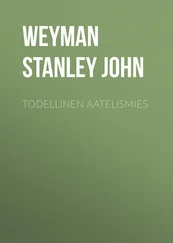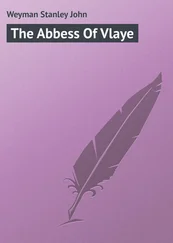Stanley Weyman - The Great House
Здесь есть возможность читать онлайн «Stanley Weyman - The Great House» — ознакомительный отрывок электронной книги совершенно бесплатно, а после прочтения отрывка купить полную версию. В некоторых случаях можно слушать аудио, скачать через торрент в формате fb2 и присутствует краткое содержание. Жанр: foreign_language, foreign_prose, на английском языке. Описание произведения, (предисловие) а так же отзывы посетителей доступны на портале библиотеки ЛибКат.
- Название:The Great House
- Автор:
- Жанр:
- Год:неизвестен
- ISBN:нет данных
- Рейтинг книги:4 / 5. Голосов: 1
-
Избранное:Добавить в избранное
- Отзывы:
-
Ваша оценка:
- 80
- 1
- 2
- 3
- 4
- 5
The Great House: краткое содержание, описание и аннотация
Предлагаем к чтению аннотацию, описание, краткое содержание или предисловие (зависит от того, что написал сам автор книги «The Great House»). Если вы не нашли необходимую информацию о книге — напишите в комментариях, мы постараемся отыскать её.
The Great House — читать онлайн ознакомительный отрывок
Ниже представлен текст книги, разбитый по страницам. Система сохранения места последней прочитанной страницы, позволяет с удобством читать онлайн бесплатно книгу «The Great House», без необходимости каждый раз заново искать на чём Вы остановились. Поставьте закладку, и сможете в любой момент перейти на страницу, на которой закончили чтение.
Интервал:
Закладка:
She never forgot the lamplit evenings of that summer; the spacious room, the fluttering of the moths that entered by the open windows, the flop of the old dog as it sought a cooler spot, the whisper of leaves turned ceaselessly in the pursuit of a fact or a fancy. In the retrospect all became less a picture than a frame containing a past world, a fifteenth-century world of color and movement, of rooms stifled in hangings and tapestries, of lines of spear-points and rows of knights in surcoats, of tolling bells and praying monks, of travellers kneeling before wayside shrines, of strange changes of fortune. For says the chronicler:
"I saw one of them, who was Duke of Exeter (but he concealed his name) following the Duke of Burgundy's train barefoot and bare-legged, begging his bread from door to door-this person was the next of the House of Lancaster and had married King Edward's sister."
And of dark sayings:
"Thys sayde Edward, Duke of Somerset, had herde a fantastyk prophecy that he sholde dy under a Castelle, wherefore he, as meche as in him was, he lete the King that he sholde not come in the Castelle of Wynsore, dredynge the sayde prophecy; but at Seint Albonys there was an hostelry havyng the sygne of a Castelle, and before that hostelry he was slayne."
"His badge was a Portcullis," her uncle said, when she read this to him, "so it was natural that he should fall before a castle. He used the Beanstalk, too, and if his name had been John, a pretty thing might have been raised upon it. But you're divagating, my dear," he continued, smiling-and seldom had Mary seen him in a better humor-"you're divagating, whereas I-I believe that I have solved the problem of the Feathers."
"The Prince of Wales's? No!"
"I believe so. Of course there is no truth in the story which traces them to the blind King of Bohemia, killed at Crécy. His crest was two vulture wings."
"But what of Arderne, who was the Prince's surgeon?" Basset objected. "He says clearly that the Prince gained it from the King of Bohemia."
"Not at all!" John Audley replied arrogantly-at this moment he was an antiquary and nothing more. "Where is the Arderne extract? Listen. 'Edward, son of Edward the King, used to wear such a feather, and gained that feather from the King of Bohemia, whom he slew at Crécy, and so assumed to himself that feather which is called an ostrich feather which the first-named most illustrious King, used to wear on his crest.' Now who was the first-named most illustrious King, who before that used to wear it?"
"The King of Bohemia."
"Rubbish! Arderne means his own King, 'Edward the King.' He means that the Black Prince, after winning his spurs by his victory over the Bohemian, took his father's insignia. He had only been knighted six weeks and waited to wear his father's crest until he had earned it."
"By Jove, sir!" Basset exclaimed, "I believe you are right!"
"Of course I am! The evidence is all that way. The Black Prince's brothers wore it; surely not because their brother had done something, but because it was their father's crest, probably derived from their mother, Philippa of Hainault? If you will look in the inventory of jewels made on the usurpation of Henry the Fourth you will see this item, 'A collar of the livery of the Queen, on whom God have mercy, with an ostrich.'"
"But that," Basset interposed, "was Queen Anne of Bohemia-she died seven years before. There you get Bohemia again!"
"Compare this other entry," replied the antiquary, unmoved: "'A collar of the livery of Queen Anne, of branches of rosemary.' Now either Queen Anne of Bohemia had two liveries-which is unlikely-or the inventory made by order of Henry IV. quotes verbatim from lists made during the lifetime of Queen Anne; if this be the case, the last deceased Queen, on whom God have mercy, would be Philippa of Hainault; and we have here a clear statement that her livery was an ostrich, of which ostrich her husband wore a feather on his crest."
Basset clapped his hands. Mary beat applause on the table. "Hurrah!" she cried. "Audley for ever!"
"Miss Audley," Basset said, "Toft shall bring in hot water, and we will have punch!"
"Miss Audley!" her uncle exclaimed, with a wrinkling nose. "Why don't you call her Mary? And why, child, don't you call him Peter?"
Mary curtseyed. "Why not, my lord?" she said. "Peter it shall be-Peter who keeps the keys that you discover!"
And Peter laughed. But he saw that she used his name without a blush or a tremor, whereas he knew that if he could force his lips to frame her name, the word would betray him. For by this time, from his seat at his remote table, and from the ambush of his book, he had watched her too often for his peace, and too closely not to know that she was indifferent to him. He knew that at the best she felt a liking for him, the growth of habit, and tinged, he feared, with contempt.
He was so far right that there were three persons in the house who had a larger share of the girl's thoughts than he had. The first was John Audley. He puzzled her. There were times when she could not doubt his affection, times when he seemed all that she could desire, kind, good-humored, frank, engaged with the simplicity of a child in innocent pursuits, and without one thought beyond them. But touch a certain spot, approach with steps ever so delicate a certain subject-Lord Audley and his title-and his manner changed, the very man changed, he became secretive, suspicious, menacing. Nor, however quickly she might withdraw from the danger-line, could the harm be undone at once. He would remain for hours gloomy and thoughtful, would eye her covertly and with suspicion, would sit silent through meals, and at times mutter to himself. More rarely he would turn on her with a face which rage made inhuman, a face that she did not know, and with a shaking hand he would bid her go-go, and leave the room!
The first time that this happened she feared that he might follow up his words by sending her away. But nothing ensued, then or later. For a while after each outburst he would appear ill at ease. He would avoid her eyes, and look away from her in a manner almost as unpleasant as his violence; later, in a shamefaced way, he would tell her that she must not excite him, she must not excite him, it was bad for him. And the man-servant meeting her in the hall, would take the liberty of giving her the same advice.
Toft, indeed, was the second who puzzled her. He was civil, with the civility of the trained servant, but always there was in his manner a reserve. And she fancied that he watched her. If she left the house and glanced back she was certain to see his face at a window, or his figure in a doorway. Within doors it was the same. He slept out, living with his wife in the kitchen wing, which had a separate entrance from the courtyard. But he was everywhere at all hours. Even his master appeared uneasy in his presence, and either broke off what he was saying when the man entered, or continued the talk on another note. More rarely he turned on Toft and without rhyme or reason would ask him harshly what he wanted.
The third person to share Mary's thoughts, but after a more pleasant fashion, was Toft's daughter, Etruria. "I hope you will like her, my dear," John Audley had said. "She will give you such attendance as you require, and will share the south wing with you at night. The two bedrooms there are on a separate staircase. I sleep above the library in this wing, and Peter in the tower room-we have our own staircase. I have brought her into the house because I thought you might not like to sleep alone in that wing."
Mary had thanked him, and had said how much she liked the girl. And she had liked her, but for a time she had not understood her. Etruria was all that was good and almost all that was beautiful. She was simple, kindly, helpful, having the wide low brow, the placid eyes, and perfect complexion of a Quaker girl-and to add to these attractions she was finely shaped, though rather plump than slender; and she was incredibly neat. Nor could any Quaker girl have been more gentle or more demure.
Читать дальшеИнтервал:
Закладка:
Похожие книги на «The Great House»
Представляем Вашему вниманию похожие книги на «The Great House» списком для выбора. Мы отобрали схожую по названию и смыслу литературу в надежде предоставить читателям больше вариантов отыскать новые, интересные, ещё непрочитанные произведения.
Обсуждение, отзывы о книге «The Great House» и просто собственные мнения читателей. Оставьте ваши комментарии, напишите, что Вы думаете о произведении, его смысле или главных героях. Укажите что конкретно понравилось, а что нет, и почему Вы так считаете.












